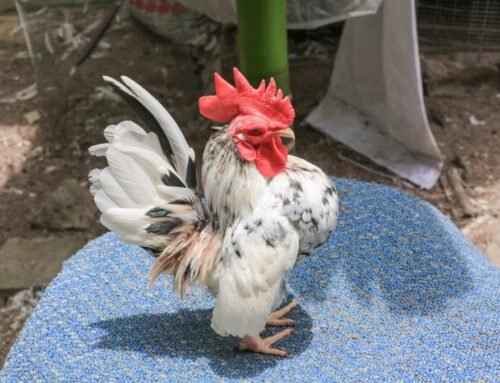Mar-a-Lago intruder Yujing Zhang heads to court in Fort Lauderdale
Yujing Zhang, the 33-year-old Chinese woman arrested for unlawful attempted entry of Mar-a-Lago in March 2019, was seen dressed in a gray jail jumpsuit with her arms and legs shackled as she was transported to the courthouse in Fort Lauderdale.
Yujing Zhang, the 33-year-old Chinese woman arrested for unlawful attempted entry of Mar-a-Lago in March 2019, was seen dressed in a gray jail jumpsuit with her arms and legs shackled as she was transported to the courthouse in Fort Lauderdale.
The Chinese national who was arrested while allegedly trying to lie her way into the president’s club in March pleaded with a judge to end her time in jail in a Tuesday appearance in federal court in Fort Lauderdale.
Wearing brown, jail-issued shirt and pants, Yujing Zhang, 33, entered the courtroom Tuesday afternoon and was helped to her seat by a female marshal when she appeared to struggle to walk. Zhang then crumpled to one side in her chair, covering her face. She sat up, however, when it was her turn to address the judge.
“I don’t want to continue staying in prison. I don’t think my health can continue,” Zhang said through an interpreter. (On previous occasions, Zhang had spoken for herself in English.)
Yujing Zhang in a photo posted on her social media account in 2008.
Zhang was charged in an indictment with lying to a federal agent and trespassing after her foray onto the grounds of Mar-a-Lago. The charges could bring a combined six years in prison if she is convicted. The trial is scheduled to begin on Sept. 3.
Zhang appeared in court Tuesday to respond to a proposal made by Assistant U.S. Attorney Rolando Garcia on Aug. 13 that she consent to a non-jury trial. However, Zhang told the court that day she had been feeling dizzy, possibly as a result of low blood pressure, and could not make a decision at the time.
On Tuesday, Zhang again refused to respond when U.S. District Judge Roy Altman repeatedly asked her whether she preferred a jury or non-jury trial.
“I don’t want either,” Zhang finally responded.
“Well, sometimes we have hard choices,” Altman said, and ruled that Zhang had not consented to waive her right to a trial by jury.
Zhang has been representing herself in court since firing her public defenders in June. On Tuesday, she maintained that she did not need an attorney.
When Altman pressed her to reconsider, Zhang responded with a confusing non-sequitur. “I don’t think it’s good to put on the clothes in the jail, because in the jail is not that clean at all,” Zhang said, apparently addressing a previous discussion where the judge said she would be allowed to wear her own clothing at trial.
Altman again accused Zhang of “playing games” with the court. “I know full well that you understand what I am saying to you both in English and in Mandarin,” Altman said.
There has been little indication from Zhang about what defense she might present, if any. She has not yet filed any jury instructions, an evidence list or a list of potential witnesses, although she has until Aug. 30 to comply.
Zhang, who worked in business in Shanghai, has told the court she has no background in law. Still, she insisted she did not want an attorney to represent her, though she provided no further explanation for her decision.
Yujing Zhang
Zhang was arrested on March 30 after she was stopped at a security checkpoint at Mar-a-Lago, President Donald Trump’s private South Florida club. Zhang originally told Secret Service agents she was at the property to use the pool, although it was later discovered she did not bring a bathing suit, Garcia said in a previous court appearance. Instead, she carried myriad electronics, including several cellphones and a thumb drive that the Secret Service originally identified as containing malware, though the malware allegation was later walked back by prosecutors.
Mar-a-Lago, President Donald Trump’s private club in Palm Beach.
At a second security checkpoint, when questioned by a receptionist, Zhang said she was there for a “United Nations” event, which the receptionist verified had never existed.
However, according to receipts produced by Zhang’s former public defender, Kristy Militello, Zhang had purchased a travel package that included a stop at Mar-a-Lago for an event that had been scheduled for March 30.
That Safari-themed fundraiser hosted by President Trump’s sister, Elizabeth Trump Grau, was canceled at the last minute after a Miami Herald investigation revealed that one of the event’s main promoters, Asian spa entrepreneur Li “Cindy” Yang, had been promoting it and other Mar-a-Lago galas as chances to get close to the president and his family.
The promotional materials, published on Chinese social media, targeted businessmen and women hoping to make contact with American elites.
According to evidence presented in court by federal prosecutors, Zhang knew the event was canceled before leaving China.
Zhang and Yang are both being looked at as part of a broader FBI probe into possible Chinese espionage at Mar-a-Lago, according to sources familiar with the counterintelligence investigation. Separately, the Department of Justice has opened a probe into Yang’s business, and the possibility that it was being used to funnel foreign money into Trump’s re-election campaign.
Yang, who has not been charged with any crimes, has denied any wrongdoing and is suing the Miami Herald for its reporting.
While Zhang has not been charged under the Espionage Act, federal prosecutors have filed confidential evidence in her case, indicating that they have information about Zhang that, if released, could endanger national security. Federal prosecutors said they will be making a second, final, secret filing later this week.








Leave A Comment